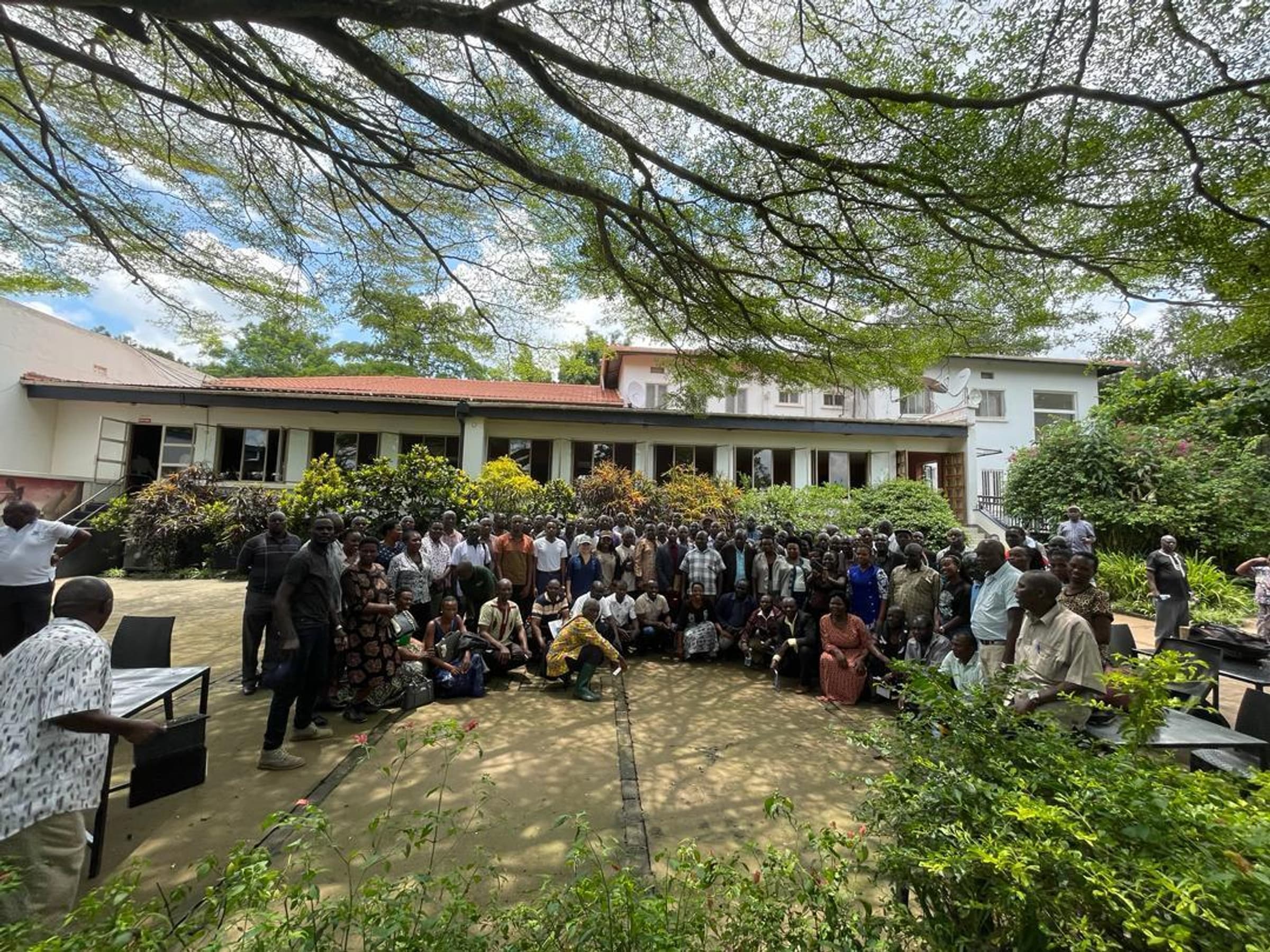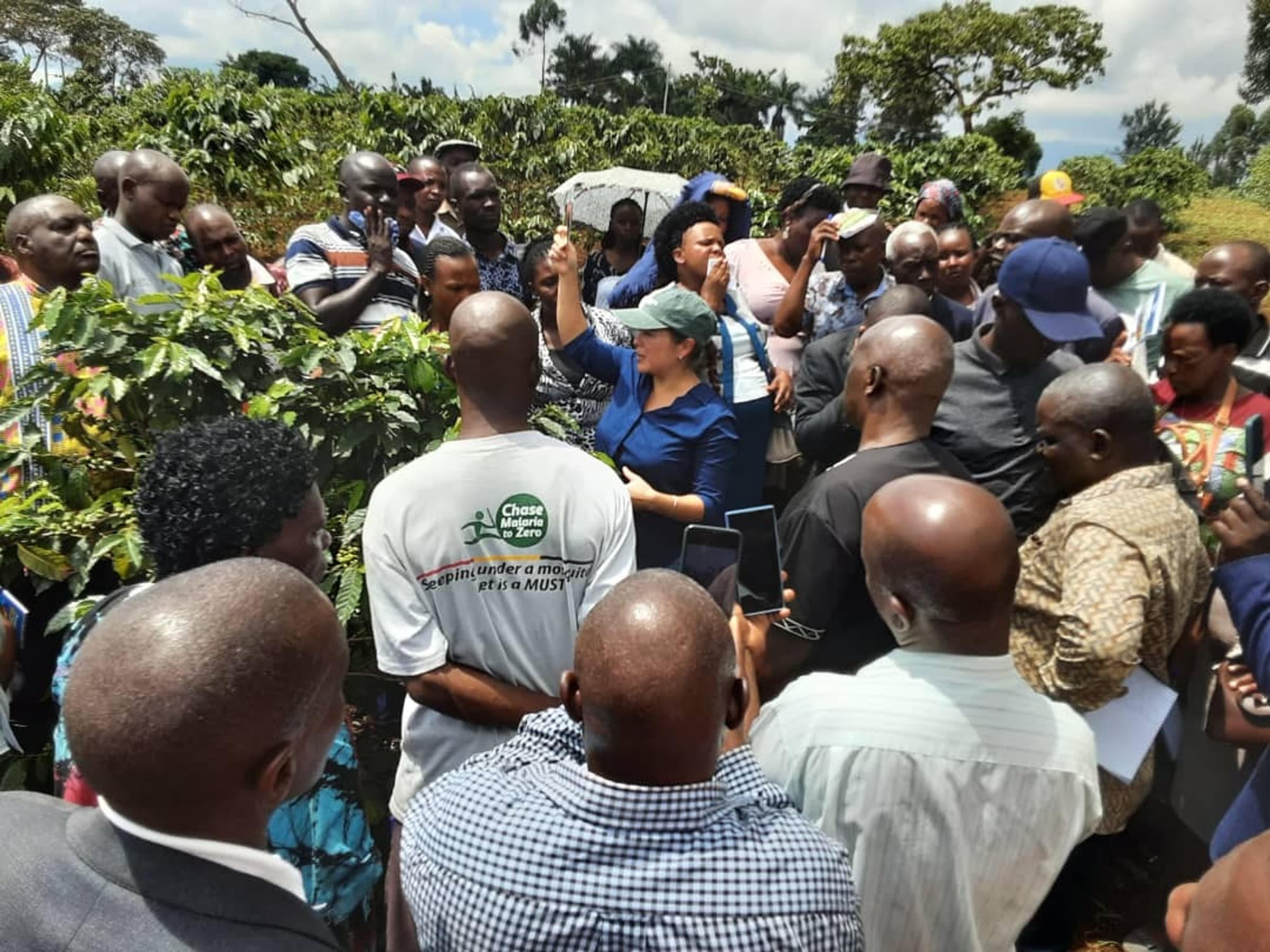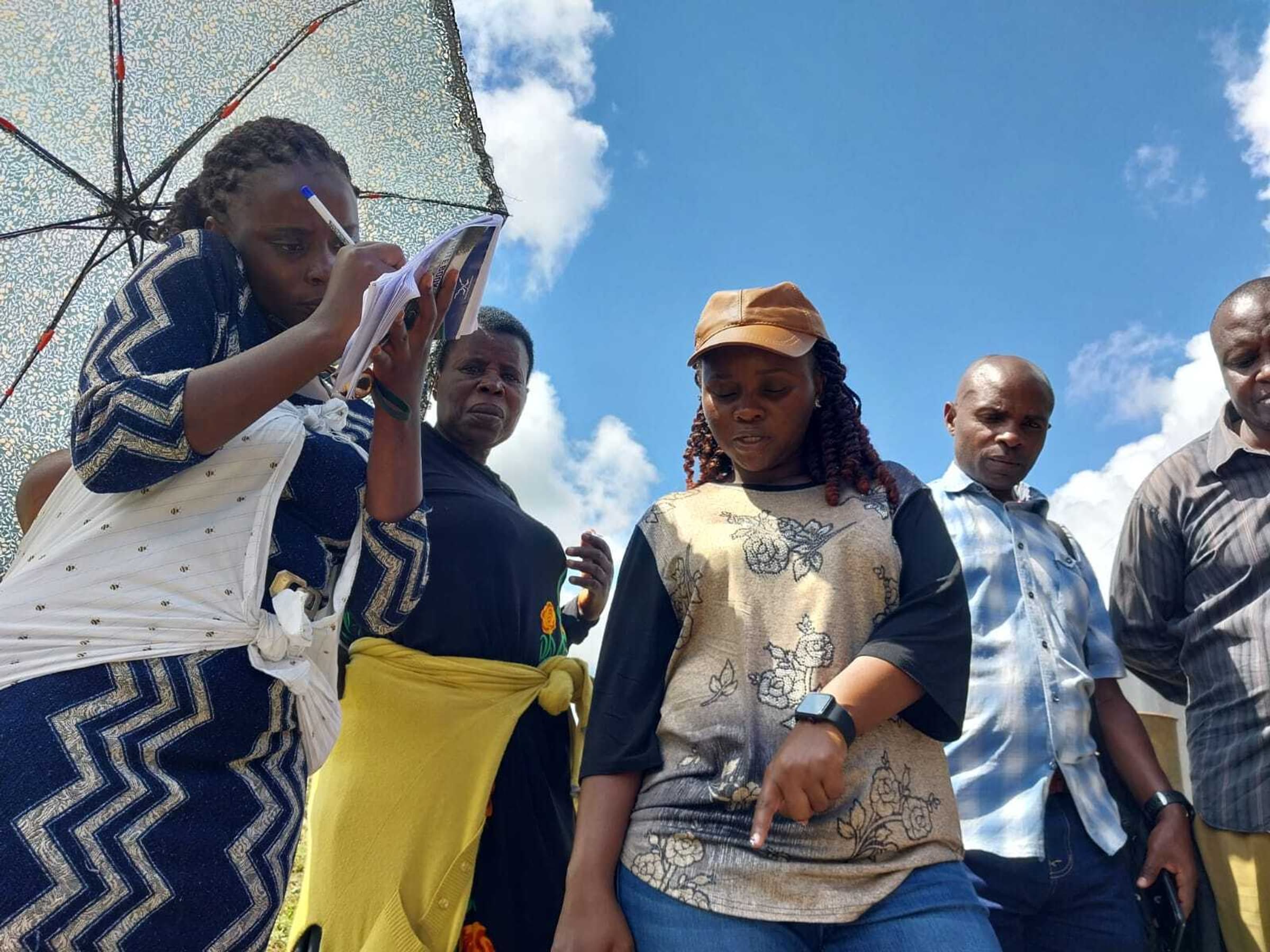Enhancing access to quality planting material, economic opportunities for coffee producers in Uganda
Training session for arabica nursery operators in Mbale draws 100+ participants, emphasizes importance of traceability and good agricultural practices

Participants from the 3-day arabica nursery training with the Uganda Coffee Development Authority pose for a group photo.
As Uganda works toward its ambitious expressed objective of transforming the coffee sector and quadrupling coffee production to 20 million bags between 2017–2030, World Coffee Research (WCR), together with the Uganda Coffee Development Authority (UCDA), is continuing its efforts to support the country’s nursery and seed sector. In mid-April, WCR Nursery Development Program Manager Emilia Umaña and Uganda Country Project Manager Maureen Namugalu co-hosted a 3-day training with UCDA in Mbale for nursery operators on the key standards for successful propagation, certification, and genetic traceability of C. arabica.
“There is tremendous potential in Ugandan coffee."
The training, supported through a targeted investment from member company Taylors of Harrogate, drew a total of 129 nursery operators, seed producers, and extension officers who are responsible for ensuring the implementation of good agricultural practices across the arabica nursery and seed value chain in the Elgon, West Nile, and Rwenzori regions of Uganda. “The training was aimed at building capacity for nursery farmers on aspects of raising quality planting material for increased productivity and income for farmers," said Namugalu.
Through the training, UCDA and WCR offered participants the opportunity to learn about important concepts like genetics, seedling management and nutrition, substrate mixing, seed bed preparation, pest and disease management, plant nutrition, seed preparation and treatment, and nursery certification that are central to increasing coffee plant productivity and quality potential. The application of these concepts was underscored through a field trip component and various practical demonstrations to ensure that participants would be able to implement this knowledge effectively in their respective capacities throughout the value chain.

Emilia Umaña, World Coffee Research Nursery Development Program Manager, conducts a demonstration for Ugandan nursery operators in the field.
“There is tremendous potential in Ugandan coffee. As most producing countries, Uganda faces many challenges as they build a strong and fully functional seed sector, and we are excited to collaborate with them as they do so,” said Umaña. “The roles of the seed producers, mother gardens, nurseries, propagation centers and others involved in this part of the value chain are truly the basis to ensure that materials and varieties live up to their full potential and reach all farmers at the appropriate time, in the correct amount and with the quality they deserve.”
Over the duration of this event, the WCR team was able to connect more deeply with the producers on the ground in Uganda and get important insight into the challenges of and opportunities available for strengthening the sector. Participants expressed a high demand for new varieties and better quality planting material to generate additional economic value for these important actors in Uganda’s coffee industry. For farmers in the West Nile region in particular, a region new to arabica production, access and availability of planting material is a challenge given that there is currently a significant scarcity of arabica seed lots in operation.

Maureen Namugalu, World Coffee Research Uganda Country Project Manager, instructs nursery operators during a practical demonstration.
Even further, there is a need for additional training to ensure that good agricultural practices (GAP) are followed to realize and maintain the benefits of genetic gain that these materials may offer—such as higher productivity, disease and pest resistance, and higher cup quality potential. For example, many participants from the Mbale training learned for the first time that arabica plants do, in fact, cross-pollinate and that genetic contamination between varieties planted in the same field is not only possible but common. Implementing practices to curb instances of cross-pollination and contamination can support the maintenance of plant and, thereby seed, genetic conformity, maximizing profitability and minimizing risk for seed producers, nursery operators, and farmers alike.
“Ensuring good coffee quality starts from nurseries—through the right variety selection and good management of that variety within the nursery environment” said Moses Rwothtimutung of Kawacom, who participated in the training, “As a nursery operator, I am equipped with better knowledge on how I can best manage my nursery to ensure quality planting material gets into the hands of the farmers.”
In the coming months, WCR and its partners at UCDA and Uganda’s National Coffee Research Institute (NaCORI) plan to identify ways to upscale its support of the nursery and seed sector in Uganda. This support will help ensure access to the tools, technologies, and knowledge needed to benefit the ~1.5 million households in Uganda that depend on sustainable coffee farming for their livelihoods as the nation forges on in its pursuit of securing a brighter future for its coffee sector.